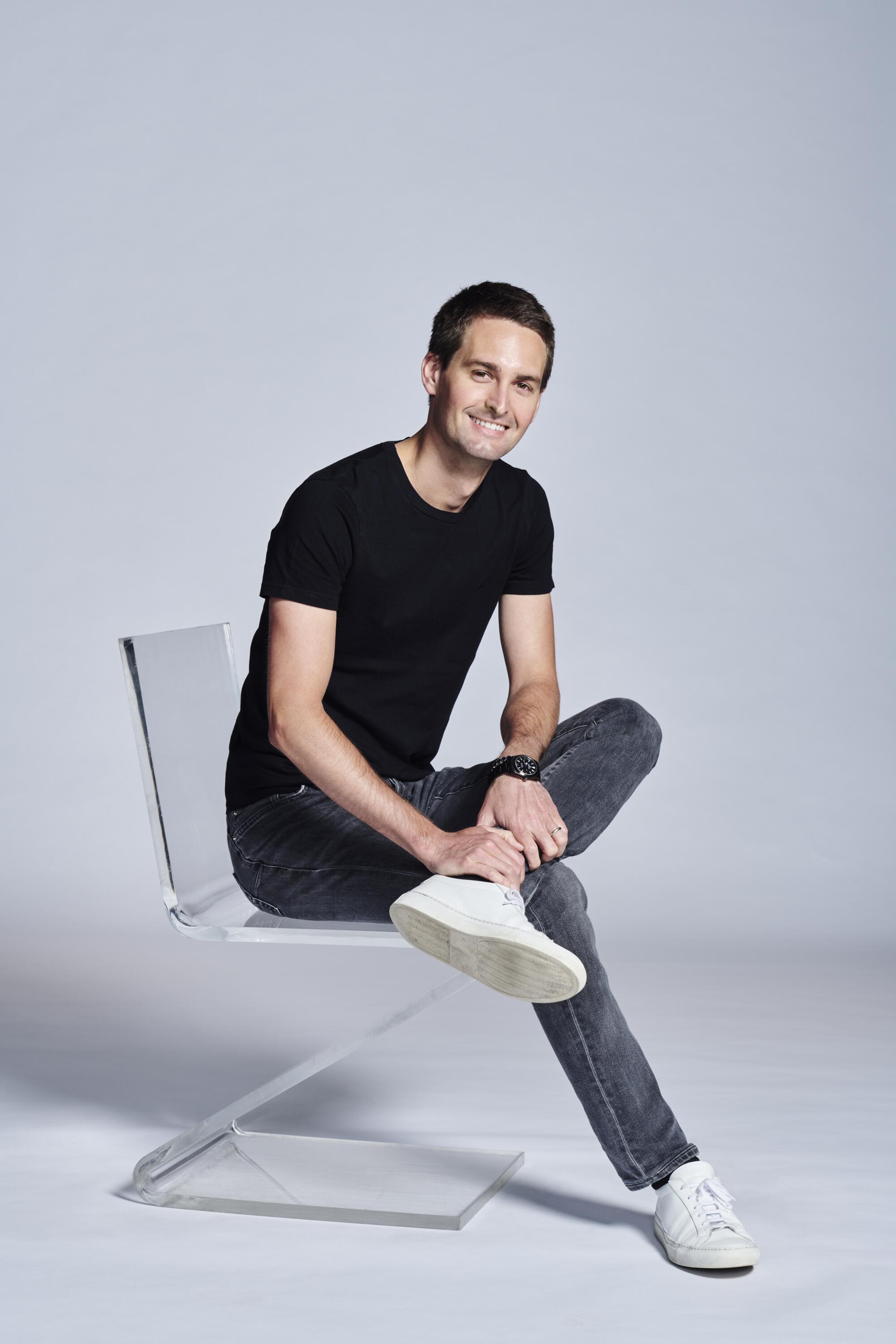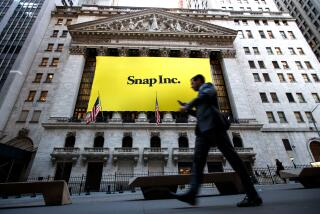- Share via

Evan Spiegel didn’t come this far to give up now.
It has been 13 years since the then-21-year-old Snap Chief Executive burst onto the tech scene with Snapchat, the photo-sharing app that fueled his company’s growth into a social media mainstay currently valued at about $25 billion.
Those years saw the rise and fall of others that tried to muscle in on Snap’s turf. Who can forget Vine, which had a moment, only to be shuttered a few years after it was bought by the company formerly known as Twitter? There was Tumblr, which collapsed under multiple owners. The start of 2022 brought BeReal, a once-a-day photo sharing app, which quickly flamed out as its daily users dropped by more than half. And the ill-fated Gas, an anonymous compliment app that topped the App Store in October 2022, was shut down months after being acquired by Discord. The list goes on.
Discover the changemakers who are shaping every cultural corner of Los Angeles. L.A. Influential brings you the moguls, politicians, artists and others telling the story of a city constantly in flux.
Amid the carnage — and TikTok’s rise to dominance — Spiegel has managed to keep Santa Monica-based Snap alive and relevant — no small feat in a tech world that is constantly innovating to win the hearts and eyeballs of the world’s fickle youth. In October 2023, Snapchat had 406 million daily active users and reached 90% of the 13- to 24-year-old population in more than 25 countries, according to the company. And competitors have rushed to copy the app’s innovative features, such as disappearing messages, 24-hour photo and video stories, and various augmented reality filters.
Snap, however, is hardly in the clear. The publicly-traded company still has yet to turn a profit, and at the end of 2022, it laid off 20% of employees in a restructuring that also scrapped plans for original shows and other new offerings. In the first quarter of 2023, Snap’s revenue fell for the first time since it went public, and fell again in the second quarter as it struggled with the decline in digital advertising. Then, this February, the company’s stock price fell sharply after a poor quarterly earnings report, wiping out $1 billion of Spiegel’s net worth.
The company’s internal culture also recently came under fire when it agreed to a $15-million settlement with California’s Civil Rights Department to resolve allegations of sexual harassment, discrimination and retaliation, despite denying the claims.
So, Spiegel, now 34, keeps fighting to write Snap’s next act.
Spiegel has managed to keep Santa Monica-based Snap alive and relevant.
He plans to grow Snapchat+, a paid service with currently 7 million subscribers, and has partnered with OpenAI to develop a chatbot to more efficiently get ads in front of users’ eyes. To try to compete with the behemoth TikTok, Snap launched Spotlight in late 2020, paying millions to entice creators to its platform.
In the third quarter of 2023, the company muscled through a return to positive revenue growth of 5% year over year, which they attributed to utilizing advanced machine learning models to optimize their ad business. They’ve also invested in AR partnerships with the L.A. Rams and Live Nation.
Alex Health, editor of the Verge, called the company a “product R&D factory for the rest of the industry” — a nod to Spiegel and his willingness to experiment, accept failure and pivot.
“Anywhere else, it would be tempting to give up and simply settle for incrementalism,” Spiegel wrote in his fall 2023 letter to employees. “Not at Snap.”




